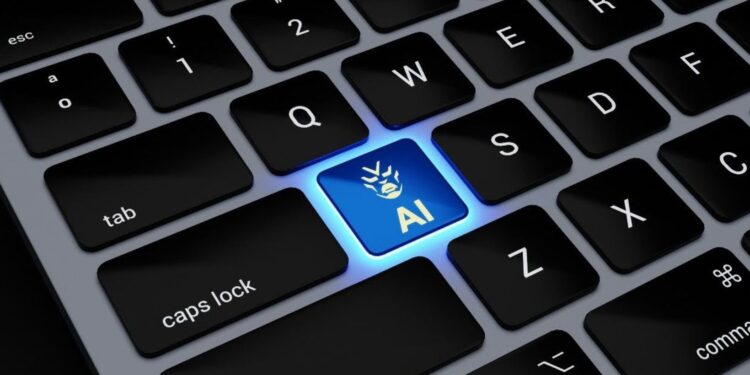When it comes to the sports industry, this field has always relied on data to measure performance. Yet, when artificial intelligence was introduced into the industry, it started to make analytics even more reliable. It all started with Moneyball’s use of statistics, yet now AI helps teams make smarter decisions in scouting, training, and even sports betting.
As experts in the field observe, AI has the power to analyze massive amounts of data faster than imagined. It can give teams different perspectives on player talent, which will later improve the team’s performance. Not to mention that it can also influence odds.
If you start reading this article, you will see how AI is changing sports with advanced predictions and analytics. So, let’s dive deeper into the future of sports analytics and see exactly their impact on the sports business.
The Impact of AI in Scouting
Not so long ago, scouting mainly relied on a mix of subjective judgment and basic statistics. A player’s physical appearance and performance on the field were major factors in evaluations.
However, once AI was introduced to the world, it was a real game-changer. This new tool can analyze game footage, performance data, and even biometric information to offer unbiased assessments. AI models can track:
- movement efficiency
- reaction times
- consistency.
These can help teams find better sportsmen and spot talent that might otherwise be overlooked.
Generative AI in Player Projections
One of the most exciting uses of AI in scouting is generative AI, which predicts the way players develop. The tech can analyze past player data and forecast an athlete’s future progress.

These models consider factors such as training habits, injury history, and skill development, helping teams make better decisions when investing in players. Ai can also simulate how a player might perform in different team strategies, allowing teams to adjust their recruitment plans accordingly.
AI-Powered Training and Performance Optimization
AI is definitely changing the way athletes train and perform by providing smarter and personalized tools. This technology can really help athletes and coaches make better decisions and improve performance.
Personalized Training Plans
With AI, teams can create training programs that are designed for each athlete based on:
- strengths
- weaknesses
- workload capacity.
To collect this data, they can use wearable devices such as fitness trackers. These devices can also collect real-time data on things like heart rate, muscle strain, and recovery.
As soon as the AI collects all this data, it uses it to help coaches develop the best training schedules, ensuring athletes perform at their best. They also try to reduce the risk of injury through these methods. These personalized plans can improve efficiency in training and help athletes have longer careers.
Real-Time Game Insights
During games, AI can help coaches by offering them valuable information. That data will help coaches make quick and smart decisions. For instance, AI tools can monitor a player’s fatigue, track movements, and suggest tactical changes during the game.
Moreover, it can even analyze an opponent’s defense and recommend the best offensive plays at the moment. This real-time data gives teams a competitive edge, which allows them to make the best decisions even under pressure.
AI in Sports Betting: Predicative Models and Odds Shaping
Some say that sports betting has always been a game of numbers. Yet, along with the addition of AI into the mix, it is definitely changing the way odds are set and bets are placed. Due to the ability to analyze massive amounts of data, AI can really predict game results with impressive accuracy.
As mentioned, AI allows odds to be adjusted in real-time, making the betting market more fluid than ever. Just like casino players look for free spins no deposit to boost their gameplay, sports fans are now using AI-powered tools to elevate their experiences. Why? We’ll get into that next.
How AI Predicts Game Outcomes?
From a traditional perspective, sports betting mostly relies on statistics, but AI takes this to another level. Machine learning programs can also examine complex data, such as player statistics, weather conditions, injury reports, and even media chatter. It uses all these data to predict what will happen during a game.
These models can also identify important factors that influence outcomes, such as the possibility of a certain player scoring a goal or a team winning by a specific margin.
AI Shaping the
We also said that AI brings a real benefit to sportsbooks as well. There are already several betting platforms that use AI to adjust odds in real-time as new information comes in, such as an injury during a game or a sudden change in betting patterns.

The systems that use AI can better monitor betting markets, spot unusual activity, and help sportsbook operators manage risk while keeping odds fair and competitive.
Ethical and Competitive Impact
There are clear indicators that AI brings many advantages to the game. Yet, just like any other new technology, it comes with some ethical concerns. If some rely too much on AI in scouting and betting, that decision can lead to mistakes and biases. If an AI system is trained on unfair or incomplete data, it might ignore talented players who don’t fit common patterns.
In sports betting, AI needs to be carefully monitored to keep things fair and prevent cheating. Being open about how AI makes decisions is important to keep trust in the game.
It’s true that AI is powerful, yet human expertise is still needed. Coaches, scouts, and analysts have instincts and a lot of experience that AI can’t fully replace at the moment.
The best teams and organizations use AI to support decisions, and not make them alone. They combine those data-driven results with human judgement, so that team can make smarter choices and stay competitive.
Conclusion
As we can clearly see, AI is transforming sports betting by helping teams find talent, improve training, and predict game results. However, teams will still need the human touch to make the right decisions.
A combination of data-driven results and the experience of coaches or scouts can deliver the best outcomes for sports teams. At the moment, the best way to make the most of AI is using it while keeping things fair and ethical.









